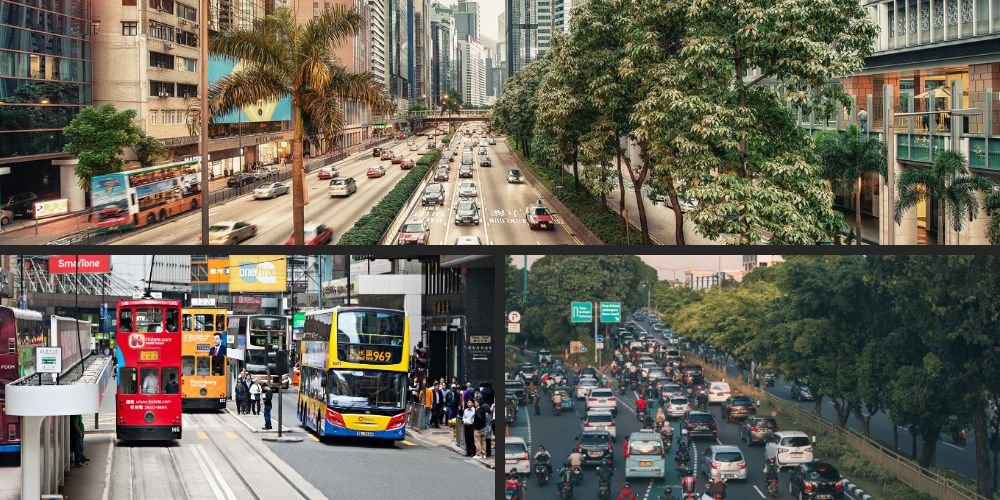Urban transportation is at the forefront of modern cities’ evolving dynamics, presenting challenges and opportunities. This in-depth analysis delves into the significance of urban transportation, its impact on cities, sustainable mobility solutions, the challenges faced, and the path toward creating efficient and accessible urban transport systems.
Significance of Urban Transportation
The significance of urban transportation is paramount due to several key factors:
- Economic Vitality: Efficient urban transportation is essential for economic activities, enabling the movement of goods, services, and the workforce.
- Quality of Life: Well-designed urban transportation enhances residents’ quality of life by reducing congestion, improving air quality, and providing convenient access to essential services.
- Environmental Sustainability: Sustainable urban transportation contributes to environmental goals by reducing carbon emissions, mitigating climate change, and promoting eco-friendly modes of travel.
Sustainable Mobility Solutions
Urban areas are increasingly adopting sustainable mobility solutions:
- Public Transit: Robust public transit systems, including buses, trains, and subways, offer cost-effective and environmentally friendly alternatives to private vehicle use.
- Cycling Infrastructure: Dedicated cycling lanes and bike-sharing programs promote eco-friendly and healthy modes of transportation.
- Electric Vehicles: Integrating electric vehicles, including buses and cars, reduces reliance on fossil fuels and lowers overall carbon emissions.
Challenges in Urban Transportation
Urban transportation faces several challenges:
- Traffic Congestion: Growing urban populations contribute to traffic congestion, resulting in delays, longer commute times, and reduced overall efficiency.
- Infrastructure Limitations: Aging infrastructure may not be equipped to handle the increasing demands for urban transportation, requiring significant investment and upgrades.
- Last-mile connectivity: Bridging the gap between transportation hubs and final destinations poses significant challenges, particularly in sprawling urban landscapes.
Technological Innovations in Urban Transportation
Technological innovations are shaping the future of urban transportation:
- Smart Traffic Management: Intelligent traffic management systems use data and technology to optimize traffic flow, reduce congestion, and enhance safety.
- Ride-sharing Platforms: The rise of ride-sharing platforms offers convenient and flexible transportation options, thereby reducing reliance on personal vehicles.
- Autonomous Vehicles: The development of autonomous vehicles has the potential to revolutionize urban transportation by enhancing safety and efficiency.
The Role of Urban Planning
Effective urban planning plays a pivotal role in shaping transportation systems:
- Mixed-Use Development: Designing urban spaces with mixed-use developments reduces the need for extensive commuting, promoting walkability and localized access to amenities.
- Transit-Oriented Development: Focusing on transit-oriented development encourages the concentration of residential and commercial spaces around transit hubs.
- Green Spaces: Incorporating green spaces into urban areas enhances the overall well-being of residents and encourages the use of alternative modes of transportation.
Future Trends in Urban Transportation
Ongoing trends shape the future of urban transportation:
- Hyperloop and High-Speed Rail: The exploration of hyperloop technology and high-speed rail networks for rapid and efficient long-distance urban travel.
- Micro-Mobility Solutions: The proliferation of micro-mobility solutions, such as electric scooters and e-bikes, for short-distance urban commuting.
- Data-Driven Decision-Making: There is an increasing reliance on data-driven insights to optimize systems and address specific commuter needs.
Conclusion
Urban transportation is a dynamic and integral aspect of city life, influencing economic development, environmental sustainability, and the overall well-being of urban residents. As cities evolve, the need for innovative and sustainable transportation solutions becomes increasingly apparent. Through technological advancements, smart urban planning, and a commitment to sustainability, cities can navigate urban transportation challenges, creating efficient, accessible, and environmentally friendly systems that contribute to the prosperity and livability of urban environments.





